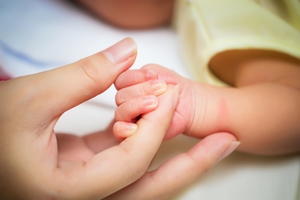“Dangerous.” That’s the assessment the American College of Obstetricians and Gynecologists gave the practice of unassisted childbirth. Yet, despite this warning, 7,000 U.S. women turn qualified medical help away each year and go solo during labor. Sadly, the results are as you’d expect, with more complications during birth and higher mortality rates for both mom and baby. So, why are women turning away from modern medicine. Let’s get down to the bottom of it.
What it’s all about
Unassisted birth, or free birth, refers to any non-emergency situation where a laboring woman shuns the presence of doctors, midwives and nurses. It does not include births that happened unintentionally before medical assistance could arrive. Albeit a fringe movement, free birth has been gaining momentum slowly since the 1970s. An advocate for the movement and an author of several books promoting it, Marilyn Moran believes that birth is a deeply personal, sexual experience that – like sex – should be shared between lovers only.
Why women are doing it
From first-time moms to childbirth veterans, women across the country are signing on for solo deliveries. Many accept the philosophy of the practice, that birth is a completely normal life event that does not constitute a medical emergency. They believe that one medical intervention leads to another – and many even steer clear of prenatal care. According to proponents of the movement, many women are inhibited by the presence of health care professionals. If given enough solitude, believers claim, women’s bodies will instruct them on pain relief, positioning, pushing and more.
Why it’s scary
Even normal, healthy pregnancies have the potential to require medical intervention. According to ACOG, 20 percent of all previously uncomplicated pregnancies present high-risk situations during labor. So, even if you’ve passed each prenatal appointment with flying colors, there’s still a risk that you may need potentially lifesaving medical assistance come delivery day. Without the proper prenatal care that includes growth, heartbeat and fluid checks – not to mention genetic testing and heart rate monitoring – how do women even confirm that their pregnancies are low-risk ones that supposedly make them fit for free birthing?
The risks
- Mortality: The underground nature of unassisted birthing makes it particularly difficult for health officials to gather data. However, in one Indiana religious community where free birthing is popular, medical officials found the mortality rate to be as much as 97 times higher than the rest of the state.
- Complications: While we’re certainly not out to scare moms-to-be, there’s always a chance for life-threatening situations during labor and delivery. From malpositioned babies to twisted umbilical cords, there may be critical moments when you and your baby need a medical team waiting in the wings.
- Baby care: Your medical team will provide care to your baby as soon as he or she is born. They’ll assess his or her heart rate, muscle tone, reflexes, color and breathing. Your team will also administer an eye ointment to protect against an infection that causes blindness, and a vitamin K shot that safeguards your baby against a brain hemorrhage.
The bottom line
Choosing to give birth alone, without qualified medical help, is an incredibly risky endeavor. Without proper guidance and care during pregnancy and throughout labor and delivery, you could be putting both you and your baby at risk.
Do you agree? Is free birth something you’ve ever considered? Join in on the discussion with other moms-to-be in our comments below.



Leave a Reply